 Welcome to my 168th gems post. This is where I share some of the latest news, ideas and resources for maths teachers.
Welcome to my 168th gems post. This is where I share some of the latest news, ideas and resources for maths teachers.1. Revision Resources
I have a page dedicated to GCSE revision resources which is the most visited page on my website. It's had around 130 000 views since I wrote it back in 2016 and it gets particularly busy in April and May. Here are a few recent additions:- John Corbett (@Corbettmaths) has created an Ultimate Foundation Revision Video and accompanying booklet which contains 400 questions. He hopes to publish the Higher version of this resource in April.
- AQA recently shared a couple of new resources. Their Topic Audits are designed to identify areas that need focus and are available for both Higher and Foundation tier. These booklets contain one past paper question per topic from across the specification. Another new resource from AQA is their Worded Problems Topic Tests. These booklets help students gain practice in answering worded problem solving questions. There are two levels of difficulty, and scaffolding is provided for students who need extra support.
- @BicenMaths shared a helpful Revision PDF containing all publicly available Higher Tier Edexcel exam questions with video solutions.
- @MrMorleyMaths has shared a set of Revision Workbooks. Each booklet contains at least one past paper question on every topic. The workbooks are split into Foundation, Crossover and Higher.
- @1stclassmaths always produces high quality resources. New Practice GCSE Papers are currently being produced in the style of both Edexcel and AQA, based on an analysis of high frequency topics. Also, I've blogged about the Spicy Questions before but just to remind you: these are great if you're after challenge for your Grade 8/9 students, and they are now available to download in a single PDF.
- New on Edexcel's Emporium is a resource called One Marker Starters. This resource uses one mark questions from the start of Foundation Papers and is designed to build confidence for your Grade 1 - 3 students. Plus there are loads more fantastic revision resources to explore on the Emporium.
@draustinmaths continues to publish excellent resources. Here are some examples of her latest tasks:
 |
| Parallel and Perpendicular Lines True or False |
 |
| Transformations of Points on Graphs Practice Grid |
 |
| Two Points Spider Diagrams |
4. Venns
I enjoyed this Venn task from @MrDraperMaths, created for Oxford Smart Mosaic. It combines topic areas, so while it appears when pupils are working with Pythagorean triples, they’re having to consider triangle area and sequences too.
It would be great if anyone can source high quality versions of these papers (rather than scans) or resources where these questions have been organised by topic. There's so many helpful questions here.
Update
The Easter holidays are here, which means it's time for the Joint Conference of the Mathematics Subject Associations. I'm looking forward to heading to the University of Warwick tomorrow morning. On Tuesday I'll be presenting my ideas for embedding calculator use at Key Stage 3.
I really enjoyed #mathsconf31 in Bracknell. It was lovely to chat to lots of maths teachers and catch up with friends. I presented on Pythagoras' Theorem, which is one of my favourite topics. Here's me with Rob Smith, who runs the Tuck Shop and raises money for Macmillan at every La Salle conference (you can still donate here).
It's been a busy half-term (it always is!), with my school gearing up for its first ever GCSEs (we opened as a brand new school five years ago so this is the first time we have Year 11) and setting up its new Sixth Form (I'm delighted that maths is going to be our biggest A level subject by a mile). Here are a few things you might have missed over the last few weeks:
Calculators
Casio have now discontinued the calculators that most students in the UK are currently using (the 83GTX and the 991EX) which seems to have come a bit out of the blue, and is frustrating for schools who have just invested heavily in these calculators. The next cohort of Year 7s will probably use the Casio 83GTCW, so if you send out equipment lists in the summer term then you'll need to update these soon, otherwise you'll end up with multiple models in each Year 7 class (even more so than usual!).
I'll leave you with this question from an A Level textbook from the 90s shared by @ThtPedagogyGeek. This made me laugh!
Thanks to an email from maths teacher Andrew, I discovered the DSE exams from Hong Kong which contain loads of excellent GCSE-style questions. Papers can be found here and here.
For example I love the interweaving with pie charts:
Even this question on basic averages is a bit more interesting than the questions our students normally encounter:
There are some lovely circle theorems questions too:
It would be great if anyone can source high quality versions of these papers (rather than scans) or resources where these questions have been organised by topic. There's so many helpful questions here.
Update
The Easter holidays are here, which means it's time for the Joint Conference of the Mathematics Subject Associations. I'm looking forward to heading to the University of Warwick tomorrow morning. On Tuesday I'll be presenting my ideas for embedding calculator use at Key Stage 3.
I really enjoyed #mathsconf31 in Bracknell. It was lovely to chat to lots of maths teachers and catch up with friends. I presented on Pythagoras' Theorem, which is one of my favourite topics. Here's me with Rob Smith, who runs the Tuck Shop and raises money for Macmillan at every La Salle conference (you can still donate here).
Later in March I had the pleasure of spending an evening at The Royal Society for the Christopher Zeeman Medal Ceremony. Simon Singh won the award in 2022 and Matt Parker, who kindly invited me along, won the award in 2020. They had a joint ceremony so we were lucky enough to hear talks from both speakers. The talks were absolutely brilliant. I was delighted to be joined at this event by my friends and fellow maths teachers Paul, Anne, Gary, David and Megan. It was a great evening.
- I shared the final video from my recent trilogy of Topics in Depth CPD sessions that I recorded with Craig Barton. This one was on Exact Trig Values. I first presented it at an online maths conference in 2021. According to @ticktockmaths, "These are the best CPD ever. Genuinely better than most telly."
- @boss_maths shared another excellent etymological blog post. This one is about what links Q, cahier, squad, and quarantine.
- Maths teacher Anna Shah emailed me about a 'Brickbusters' game that she has developed that might be of interest to maths teachers.
- Check out @MattTheApp's feed for the latest updates to mathswhiteboard.com, which now features a PDF annotation tool - great for reviewing exam papers.
Casio have now discontinued the calculators that most students in the UK are currently using (the 83GTX and the 991EX) which seems to have come a bit out of the blue, and is frustrating for schools who have just invested heavily in these calculators. The next cohort of Year 7s will probably use the Casio 83GTCW, so if you send out equipment lists in the summer term then you'll need to update these soon, otherwise you'll end up with multiple models in each Year 7 class (even more so than usual!).
The new 83GTCW has a different layout to the 83GTX, with some key buttons moving position (Ans and Pi) and the loss of the SD button (replaced with a format button which takes more key presses to convert between fraction/surd and decimal). So it will take a bit of getting used to. I recommend departmental CPD on this in the summer term or in September - Casio have videos coming soon, and there's also the excellent Calculator Guide. Check out their videos on using the new model to find HCFs and LCMs and draw inequalities on number lines.
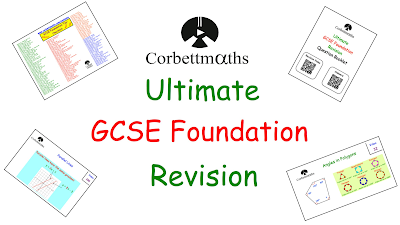

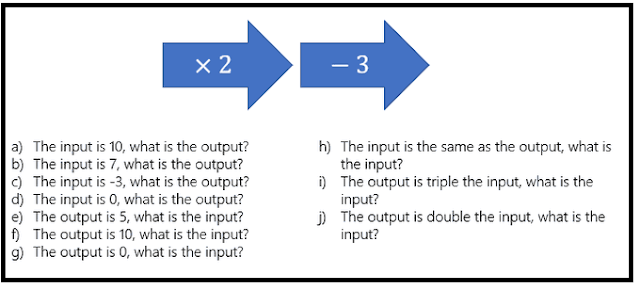
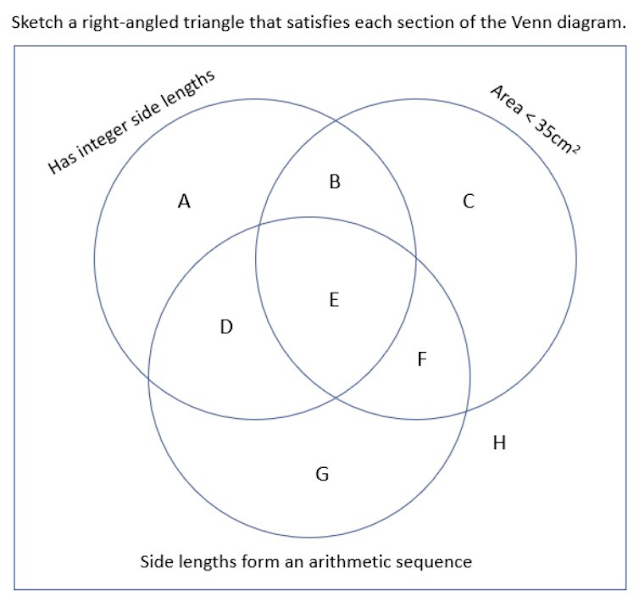
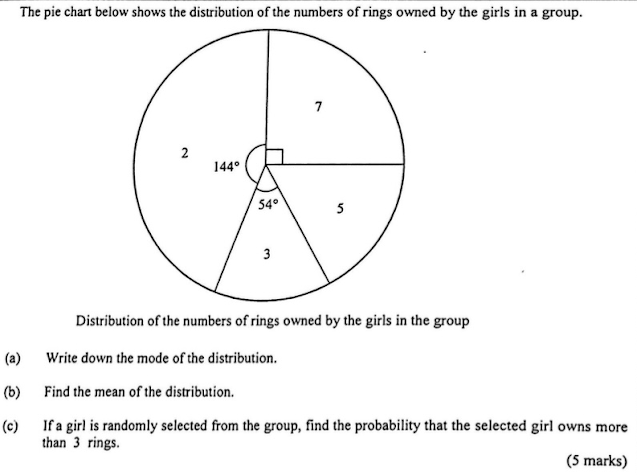





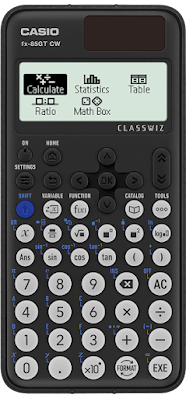

No comments:
Post a Comment